Epithalon – 25MG
$109.00
Discount per Quantity
| Quantity | Discount | Price |
|---|---|---|
| 5 - 8 | 5% | $103.55 |
| 9 + | 10% | $98.10 |
Scientific Overview of Epithalon
Epithalon, also referred to as Epitalon, is a synthetic peptide that has been studied for its possible involvement in cellular aging processes. Experimental investigations suggest that it may interact with telomerase activity and influence melatonin production. Research has also explored its potential relevance to areas such as oxidative stress, gene regulation, and circadian rhythm.
Alternative Names: Epitalon, Epithalone, Epithalamin
Studies and Research Data
Investigations into DNA Regulation and Gene Expression
Laboratory studies suggest that Epithalon may influence the regulation of certain genes. Findings indicate possible interactions with promoter regions of genes linked to immune system function, extracellular matrix maintenance, and cellular signaling. Experimental data also propose that Epithalon may modulate histone-DNA interactions, potentially altering chromatin accessibility and influencing transcription processes. Research in stem cells has suggested an upregulation of markers associated with neuronal differentiation, which could point toward possible roles in epigenetic regulation.
Epithalon Exploration of Melatonin Secretion
Research on rodent and primate models has examined whether Epithalon may play a role in melatonin synthesis. The peptide has been studied for its potential influence on enzymes and proteins associated with circadian rhythm, suggesting a possible connection to the regulation of sleep-related hormonal cycles.
Research Related to Oocyte and Cellular Aging
Studies on oocyte models have proposed that Epithalon may help preserve cellular structure during the aging process. Evidence includes observations of reduced oxidative stress markers, improved mitochondrial parameters, and decreased indicators of DNA damage. These findings suggest potential roles for the peptide in supporting cellular stability under conditions of stress.
Epithalon Studies on Tumor Growth Pathways
Rodent experiments have investigated Epithalon in the context of cancer research, with particular attention to its potential modulation of circadian-related genes. For example, PER1 gene activity, which is often reduced in tumor progression, has been examined as a possible pathway of interest. Preliminary data suggest that Epithalon may influence tumor development and radiation sensitivity, though further research is needed.
Research into Extracellular Matrix Dynamics
Epithalon has been explored for its possible impact on extracellular matrix (ECM) proteins, such as MMP2, which are associated with tissue remodeling. In animal studies, peptide exposure was linked with increased fibroblast activity, suggesting potential roles in connective tissue processes. Investigations have also considered whether Epithalon may interact with enzymes involved in programmed cell death, raising questions about its relevance to cell survival.
Epithalon Investigations into Visual Function
Rat models of retinal degeneration have been used to evaluate Epithalon’s potential impact on eye structure and retinal bioelectrical activity. Some studies suggest improvements in structural preservation and functional outcomes, though the mechanisms remain under investigation.
Conclusion
Research on Epithalon spans diverse themes, including cellular aging, gene expression, circadian regulation, extracellular matrix dynamics, and visual function. Findings are preliminary, and while they suggest multiple possible biological pathways of interest, further studies are required to clarify mechanisms and implications.
References
- Lin'kova, N. S., Drobintseva, A. O., Orlova, O. A., Kuznetsova, E. P., Polyakova, V. O., Kvetnoy, I. M., & Khavinson, V. K.h (2016). Peptide Regulation of Skin Fibroblast Functions during Their Aging In Vitro. Bulletin of experimental biology and medicine, 161(1), 175–178. https://doi.org/10.1007/s10517-016-3370-x
- Khavinson V, Diomede F, Mironova E, Linkova N, Trofimova S, Trubiani O, Caputi S, Sinjari B. (2020). AEDG Peptide (Epitalon) Stimulates Gene Expression and Protein Synthesis during Neurogenesis: Possible Epigenetic Mechanism. Molecules, 25(3), 609. doi: 10.3390/molecules25030609. PMID: 32019204; PMCID: PMC7037223.
- Gery, S., Komatsu, N., Baldjyan, L., Yu, A., Koo, D., & Koeffler, H. P. (2006). The circadian gene per1 plays an important role in cell growth and DNA damage control in human cancer cells. Molecular cell, 22(3), 375–382. https://doi.org/10.1016/j.molcel.2006.03.038
- Yue X, Liu SL, Guo JN, Meng TG, Zhang XR, Li HX, Song CY, Wang ZB, Schatten H, Sun QY, Guo XP. (2022). Epitalon protects against post-ovulatory aging-related damage of mouse oocytes in vitro. Aging (Albany NY), 14(7), 3191-3202. doi: 10.18632/aging.204007. PMID: 35413689; PMCID: PMC9037278.
- Khavinson, V. K.h, Tarnovskaya, S. I., Linkova, N. S., Pronyaeva, V. E., Shataeva, L. K., & Yakutseni, P. P. (2013). Short cell-penetrating peptides: a model of interactions with gene promoter sites. Bulletin of experimental biology and medicine, 154(3), 403–410. https://doi.org/10.1007/s10517-013-1961-3
- Khavinson VKh. (2002). Peptides and Ageing. Neuro Endocrinol Lett, 23 Suppl 3, 11-144. PMID: 12374906.
- Khavinson, V., Razumovsky, M., Trofimova, S., Grigorian, R., & Razumovskaya, A. (2002). Pineal-regulating tetrapeptide epitalon improves eye retina condition in retinitis pigmentosa. Neuro endocrinology letters, 23(4), 365–368.
- Anisimov VN, Mylnikov SV, Khavinson VK. (1998). Pineal peptide preparation epithalamin increases the lifespan of fruit flies, mice and rats. Mech Ageing Dev, 103(2), 123-32. doi: 10.1016/s0047-6374(98)00034-7. PMID: 9701766.
- Chalisova, N. I., Lin'kova, N. S., Zhekalov, A. N., Orlova, A. O., Ryzhak, G. A., & Khavinson, V. K.h (2014). Advances in gerontology = Uspekhi gerontologii, 27(4), 699–703.
- Korkushko, O. V., Lapin, B. A., Goncharova, N. D., Khavinson, V. K.h, Shatilo, V. B., Vengerin, A. A., Antoniuk-Shcheglova, I. A., & Magdich, L. V. (2007). Advances in gerontology = Uspekhi gerontologii, 20(1), 74–85.
Disclaimer:
The products mentioned are intended solely for laboratory research and in-vitro experimentation. They are not approved for human or animal use of any kind. All details provided are for educational purposes only. By purchasing from this site, you agree to comply with our Terms and Conditions.
Only logged in customers may leave a review.
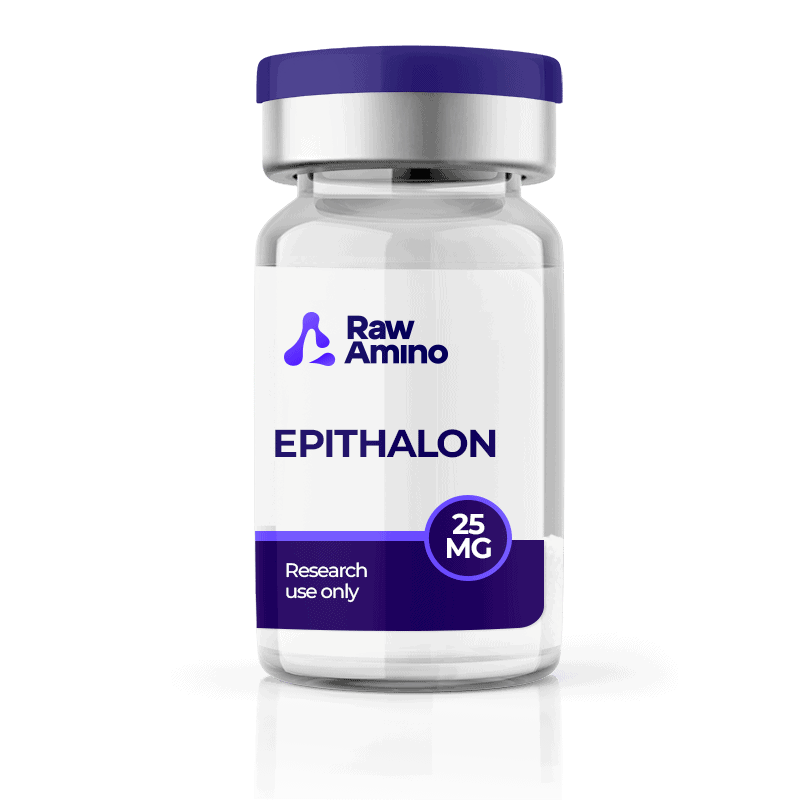
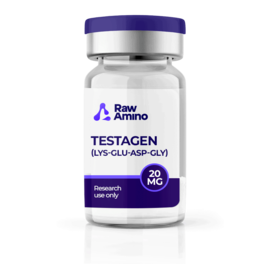
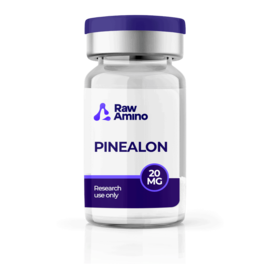
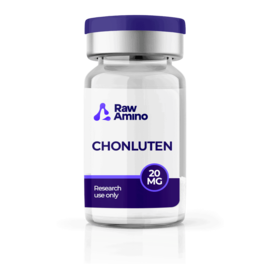
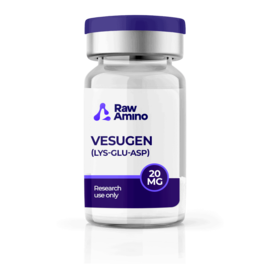
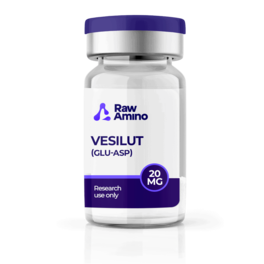
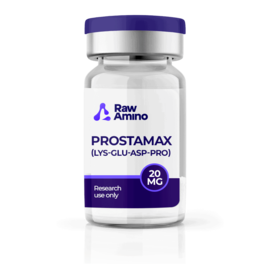
Reviews
There are no reviews yet.